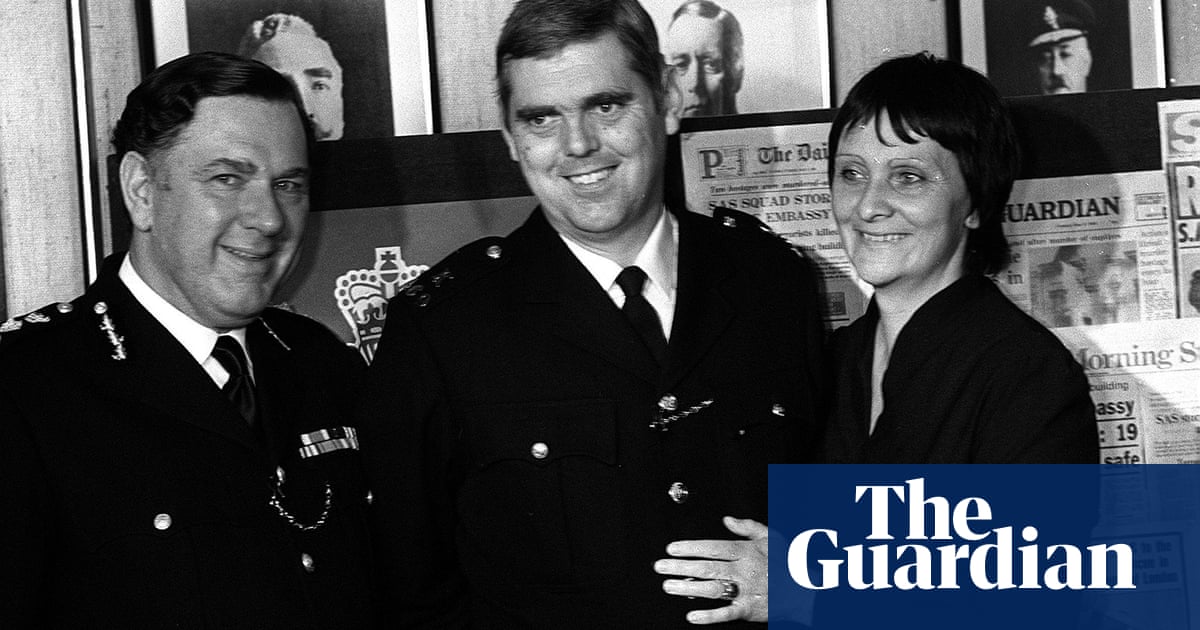There is a sense that the 130-plus Premier League charges Manchester City are facing are unprecedented, and in terms of the potential fallout that may be true. City have the wealth and, it seems, the will to pursue extraordinarily costly legal action. If they are found guilty – and it should be stressed that they deny all charges – the implications for the club and the league could be seismic. But the charges are not unprecedented. Twice before in the 150-year history of English football, clubs have faced major investigations into illegal payments. Both had hugely significant consequences for the clubs involved.
The 1906 City scandal
Ardwick had been among the original members of the second division of the Football League when they were founded in 1892. They became Manchester City after financial problems in 1893-94 and, that summer, they signed Billy Meredith, a 19-year-old Welsh miner who played on the wing, from Northwich Victoria. A decade later Meredith had become the biggest star in the game, and City looked like becoming a major club. City had been promoted in 1899 and, in 1904, they won the FA Cup, beating Bolton 1-0 at Crystal Palace with a goal from Meredith. They returned home to a great victory parade, the streets packed, people hanging from the upper stories of buildings, a brass band playing. It was the first trophy in City’s history, and there was every reason to believe they would soon go on to win a lot more. But two weeks later the Football Association secretary, Frederick Wall, and a member of the FA general council, John Lewis, arrived at the club’s Hyde Road ground and demanded to see the books.
Their investigation lasted all summer and concluded that missing cheques and forged receipts were evidence of illegal inducements offered to new signings. The club were fined £250 (at a time when the maximum wage for players was £4 a week), the ground was closed for a month and one player and four directors received suspensions, but essentially it seemed a trivial bureaucratic issue. The seeds of something far more serious, though, had been sown.
On the final day of the following season, 1904-05, City went to Aston Villa. If they won and Newcastle failed to win at Middlesbrough, they would be champions. As it was, Newcastle won 3-0 and so would have taken the title anyway, but City lost a bad-tempered game 3-2 amid crowd disturbances. The FA launched an inquiry, but it soon became apparent that its scope extended beyond the fracas at Villa Park. In August, came the shock verdict: Meredith was banned for the season for having tried to bribe the Villa captain, Alec Leake. Meredith vehemently denied the accusation, claiming he had made the offer as a joke, and hinted he was being scapegoated because of his work on the campaign to abolish the maximum wage.

City refused to pay Meredith during his suspension. Although he had an income from a sport shop he ran in Manchester, he felt betrayed by the club and, it appears, began passing on information about City’s finances to the FA. Another inquiry was set up in March 1906. It soon became apparent that the payment of wages and bonuses in excess of those permitted was endemic at the club. At the end of May, the inquiry announced its findings: a percentage of gate receipts was being siphoned off into private bank accounts that were then used to make the illegal payments to players. Meredith himself had been on £6 a week, 50% more than was permitted. “It is now proved,” the report concluded, “that the club had for years systematically broken the rules by very unscrupulous means.”
Seventeen current and former players were suspended for the rest of 1906 and issued with fines of £900. Meredith alone had to pay £100. Four directors were banned, two of them sine die, and the club were fined £250. Although it was an open secret that many other clubs had made similar payments, for City the consequences were severe. In the previous three seasons they had finished second, third and fifth. In the three that followed they finished 17th, third and 19th, which meant relegation in 1908-09.
But Meredith wasn’t finished. Stung by public criticism, he calculated the scandal had cost him £1,674. Manchester United agreed they would cover those costs if he signed for them, and the FA ruled there was no reason he should not receive back-pay for the period of his suspension. City had put their other suspended players up for sale at an auction staged at the Queen’s Hotel. Ernest Mangnall, United’s boater-wearing manager, tapped up four of them before the auction began. The following season, with five former City players in their squad, United won the league for the first time. When they won their first FA Cup the following year, the only goal in the final against Bristol City came from one of those former City players, Sandy Turnbull, who followed in after a Meredith shot had struck the bar.
City would not win the league until 1936-37.
The Mysterious Mr Smith
When the second world war began Sunderland were, with Aston Villa, the most successful side in English league history. But they hadn’t renewed the contract of the great inside-forward and captain Raich Carter after the war and, struggling to recapture the glories of the mid-30s, embarked on a transfer splurge that earned them the nickname the Bank of England club. It reached its peak in October 1950, when Sunderland broke the world transfer record to sign the Wales centre-forward Trevor Ford for £30,000.
Sunderland finished fourth in 1954-55 but fell into the familiar trap: although they had several great individuals, they did not have a great team. As the decade went on, the spending slowed and form deteriorated. A home defeat by Wolves on New Year’s Day 1957 left them third-bottom (with two to go down) but what followed later in the month was far worse.

A letter from a “Mr Smith” was sent to the Football League, making detailed allegations of illegal payments to players. The league and the FA launched a joint investigation and found a receipt for £3,000 of straw on which had been scribbled: “Where do I put this?” At the time, all clubs would cover their pitches during the winter to protect the grass from frost, but this seemed excessive. The league secretary, Alan Hardaker, rang his bother Ernest, who was chairman of Hull rugby league club, and asked how much they spent on straw each year. The answer was clear: £3,000 would buy enough straw for 25 years. The commission intensified its search.
after newsletter promotion
It turned out Sunderland would overorder a product and return it, so the contractor would issue a credit note that could then be cashed to make payments to players above the £15 a week maximum wage. In total the commission found £5,450 had been raised in that way over a five-year period. Like City half a century earlier, Sunderland almost certainly weren’t the only club to operate in that way, but they were the ones who made the cardinal mistake of being caught.
Four directors were banned, two permanently, and the club was fined a record £5,000, while the manager, Bill Murray, was fined £200. A number of players, including Ford, were suspended but those bans were lifted when they sued the league. Nonetheless, the impact on morale was dreadful. Sunderland avoided relegation by three points but Murray, apparently shattered by the experience, resigned in the summer. He died four years later.

The disciplinarian Alan Brown took over. He was a very different personality to Murray, a tough man who believed hard work and suffering were essential and unavoidable. Heading technique was practised with golf balls. If the pitch at Roker Park was frozen, the squad would train on the beach. The following decade he had the players muck in building a new training complex in Washington, carrying hods and mixing cement.
Brown soon found himself in conflict with some of the bigger names in his squad. The inside-forward Len Shackleton, for instance, retired after one game of the 1957-58 season, and Ray Daniel, the elegant centre-half noted for his impression of Robert Mitchum and his fine voice (he was briefly dropped by Wales after outraging the chapel-going FAW secretary Herbert Powell by singing a Guys and Dolls number on the team bus in Czechoslovakia) was offloaded in the October. The poor form continued and, for the first time, Sunderland were relegated. They have never really recovered, and have won only one major trophy since.
Who the mysterious Mr Smith was has never been explained, although given his evidently detailed knowledge of the club it seems probable he was either a disgruntled former employee or a board member engaged in some politicking that went badly wrong.
Football is not the same game as it was 70 years ago, still less 120. The biggest clubs have financial advantages that didn’t exist then, an economic safety net that should stop them falling too far. But, equally, were City to be convicted, and were the punishment to be severe, there are no guarantees they would immediately recover. A heavy points deduction leading to relegation could have a profound impact on future profitability and sustainability calculations. Sheikh Mansour may lose interest. Or perhaps they bounce back, galvanised by the sense of a world against them. Perhaps they are exonerated.
But if Manchester City are found guilty, the precedents are not good.

 2 days ago
9
2 days ago
9













































